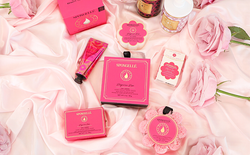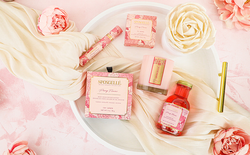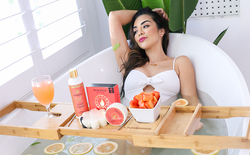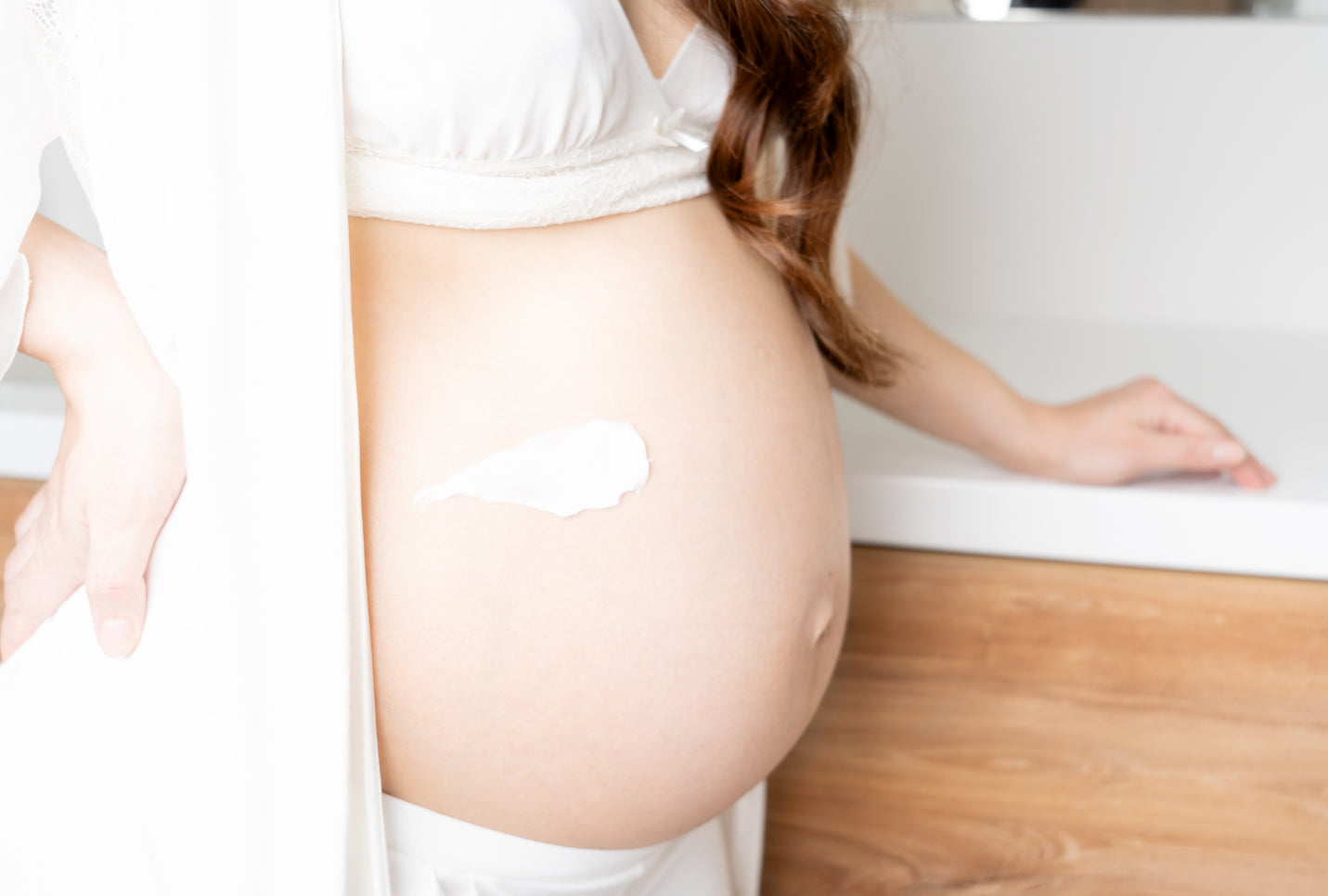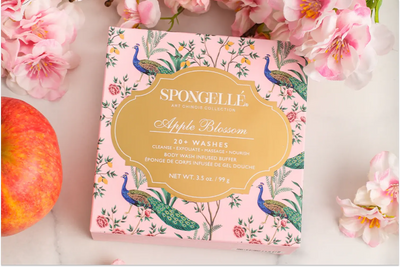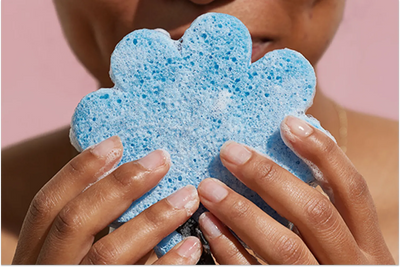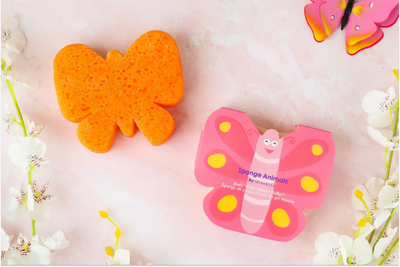The changes your body goes through to make a safe home for your little human can be incredible — and, at times, a little overwhelming.
As your anticipation grows, your skin also embarks on a journey of its own. Hormones hustle, playing a delicate dance that leaves your skin radiating one day — hello, legendary pregnancy glow — and perhaps a little puzzled the next.
Pregnancy does come with its fair share of skin surprises, and we're here to help you navigate this skin transformation in ways that are safe for you and your baby.
Why Is Evaluating Your Skin Care Routine During Pregnancy Important?
During this incredible time in your life, your body is going through significant changes as it supports the growth of your baby. Just as it's crucial to maintain a balanced diet, it's also important to be mindful of what you're putting on your skin. Certain skincare ingredients can get absorbed into your body and potentially affect your growing baby.
Your go-to moisturizer or beloved skin serum might contain ingredients that aren't the best match for your changing body. Additionally, skin sensitivity often increases during pregnancy, so you might find yourself reacting to products that you previously used without issue.
Hormonal changes during pregnancy can also trigger new skin concerns or exacerbate existing ones. We understand that navigating these changes while ensuring the safety and well-being of both you and your baby might seem a bit daunting. But, by being diligent about scrutinizing the ingredients in your skincare products, you can comfortably take care of your skin as you grow your little one.
How Can Your Skin Change During Pregnancy?
As your body prepares for the arrival of your little one, your largest organ — the skin — often experiences the effects of these changes firsthand.
Pregnancy hormones can enhance your skin's melanin production, leading to dark spots. Suddenly, you might notice darker patches on your face, or perhaps your freckles and moles seem more pronounced than before.
Rosacea might make an unexpected appearance, adding a delicate flush to your cheeks. Your skin type might shift back and forth — sometimes oily, other times dry — making it challenging to stick to a consistent skincare routine.
In these moments, seeking advice from a board-certified dermatologist can be invaluable. They're the pros, after all, understanding the intricacies of skin behavior during pregnancy.
While adapting to your evolving skin may seem like a complex task, knowing about these potential skin changes can help you feel more empowered and prepared to handle them.
What Ingredients Should You Avoid During Pregnancy?
As you navigate the world of skincare during pregnancy, some familiar skincare ingredients might suddenly be off-limits. Here's a more detailed look at what ingredients are better left out for now.
Retinol and Retinoids
Retinol and retinoids, like tretinoin, are forms of vitamin A that promote cell turnover and combat signs of aging. However, studies have found that high levels of vitamin A can lead to birth defects. Even though the risk from topical application is likely low, it's better to be safe and avoid these during pregnancy.
Salicylic Acid and Benzoyl Peroxide
Salicylic acid and benzoyl peroxide are commonly used in acne treatments. These chemicals are used to exfoliate the skin and kill acne-causing bacteria. But during pregnancy, they can potentially be absorbed into your bloodstream.
While small amounts are generally considered safe, larger amounts (over two percent for salicylic acid and over five percent for benzoyl peroxide) could potentially harm your baby, so we recommend leaving it out of your skincare routine for now.
Hydroquinone
Hydroquinone lightens the skin by reducing the amount of melanin, the pigment that gives skin its color. However, it's also one of the few skincare ingredients that's absorbed into the bloodstream in larger quantities. This ingredient has also been connected with birth defects, so it's best to avoid it to ensure you're not taking any unnecessary risks.
Chemical Sunscreens With Oxybenzone
Sunscreen is an essential part of any skincare routine, but not all sunscreens are safe for your growing human. Chemical sunscreens often contain oxybenzone, a chemical that absorbs UVA and UVB rays.
However, oxybenzone works by absorbing into the skin and can make its way into your bloodstream. Some studies suggest it might affect hormone levels, making mineral sunscreens a safer choice during pregnancy.
If these common ingredients are on the labels of your favorite creams and serums, don’t worry. There are plenty of pregnancy-safe alternatives you can switch to in order to protect your skin and your little human during this time.
What Skincare Ingredients Are Considered Pregnancy-Safe?
While it's crucial to know what to avoid, it's equally as important to know what skincare ingredients are safe and beneficial during pregnancy. The good news is that many skincare ingredients can help address pregnancy-related skin changes, all while being gentle on your skin and safe for your baby.
Hyaluronic Acid
Hyaluronic acid is the champion hydrator, capable of retaining up to 1,000 times its weight in water. It's excellent for tackling dry skin that often comes with pregnancy. It can help keep your skin plump and hydrated, reducing the appearance of fine lines. Plus, it's naturally found in the body and is generally safe to use during pregnancy.
Azelaic Acid
For those dealing with breakouts during pregnancy, azelaic acid can be your best bet. It can help reduce the appearance of redness and brighten your skin, effectively replacing salicylic acid and benzoyl peroxide in your pregnancy skincare routine.
Vitamin C
Vitamin C is a powerhouse antioxidant that can protect your skin from environmental damage. This brightening and nourishing ingredient can help lighten the appearance of dark spots and is a great ingredient for dealing with some of the common skin changes during pregnancy.
Niacinamide
Niacinamide, or vitamin B3, is a popular ingredient for aging skin, as It can help support skin elasticity, encourage skin barrier function, fade the appearance of discoloration, and even soothe breakouts. Consider it your Swiss Army knife of pregnancy-safe skincare.
Zinc Oxide and Titanium Dioxide
Zinc oxide and titanium dioxide are minerals that can provide sun protection by physically blocking the sun's harmful rays, which is key for pregnancy-safe SPF products. Unlike chemical sunscreens, they sit on your skin’s surface, avoiding potential issues that come with absorption.
Peptides
Peptides are small proteins that can support collagen production, smoothing skin texture and minimizing the appearance of fine lines. If you're missing retinol in your routine, peptides are a great, safe alternative to support skin smoothness and elasticity during pregnancy.
Glycolic Acid
Another safe and effective exfoliant is glycolic acid. Part of the alpha hydroxy acid (AHA) family, it can help slough off dead skin cells, unclog pores, and smooth skin texture. With its ability to alleviate dry skin and brighten your complexion, it's an excellent pregnancy-safe alternative to retinol and salicylic acid.
Vitamin E
Vitamin E is a potent antioxidant that can help defend your skin from damage by neutralizing free radicals caused by environmental stressors like UV rays and pollution. This ingredient’s moisturizing and healing benefits also make it a great support for dry and sensitive skin, which are common in pregnancy. It's generally well-tolerated and considered safe for use during pregnancy.
By replacing products containing harsher, potentially harmful ingredients, Vitamin E-infused products like our moisturizers here at Spongellé can help support your skin's health and resilience.
Establishing a skincare routine with these ingredients can help you navigate the skin changes during pregnancy while ensuring safety for both you and your baby. Whether it's fighting off breakouts, fading the appearance of pigmentation, hydrating the skin, or protecting against the sun, these ingredients have you covered.
How To Establish a Pregnancy-Safe Skincare Routine
As the golden rule goes, what works for one might not work for the other. Skincare during pregnancy is no exception. It's all about addressing your skin's unique needs while keeping your little one safe. So, don't be afraid to experiment (with safe ingredients, of course) and adjust your skincare routine as your pregnancy progresses.
Morning and Night Routine
Start your day with a gentle cleanser to help remove dirt and excess oil without stripping your skin. Follow up with a vitamin C serum to guard your skin against environmental damage and tackle dark spots.
Next, apply a moisturizer — this is where Spongellé's collection of lotions shines. Made with all-natural ingredients like Vitamin E, Safflower Seed Oil, Shea Butter, and Jojoba Seed Oil, these lotions are a dream come true for dry and sensitive skin.
Our powerful blend of ingredients can not only hydrate and soothe the skin, but also support skin health, soften skin texture, and keep your skin supple. Plus, they're vegan, cruelty-free, paraben-free, and dermatologist-tested.
To top off your morning routine, don't forget sunscreen with zinc oxide or titanium dioxide to protect your skin from sun damage. For your night routine, opt for a topical treatment with hyaluronic acid, azelaic acid, or niacinamide, and follow up with a moisturizer.
Adjusting by Trimester and Postpartum
As you journey through your trimesters, your skin will have its ups and downs. You might experience dry skin, breakouts, or increased sensitivity. In these cases, adjusting your skincare routine is key.
Sticking to fragrance-free products for ultra-sensitive feeling skin can be a lifesaver, while the gentle exfoliation from our Body Wash Infused Buffers can soothe and nourish dryness to help keep your skin feeling bright and smooth.
Postpartum, your skin will gradually revert to its pre-pregnancy state. Continue with your pregnancy-safe routine until you've finished breastfeeding, and then you can gradually reintroduce your pre-pregnancy favorites.
Of course, always consult your OB-GYN or dermatologist if you have any concerns or if you're considering introducing new products into your routine.
Embrace Your Pregnancy Glow
Navigating your skincare routine during pregnancy can be a journey, but it's all part of the beautiful process. The stretch marks and skin changes are signs of the incredible feat your body is accomplishing. That is skin worth celebrating!
Every expectant mother deserves a little extra TLC during this remarkable time. Tending to your skin with safe, nurturing products isn't just necessary — it's a form of self-care that can make you feel as radiant as you truly are. Spongellé's range of pregnancy-safe products is here to support you on this journey, providing all the care your changing skin needs.
So here's to embracing your pregnancy glow and enhancing it with a pregnancy-safe skincare routine. After all, you're not just expecting — you're blooming.
Sources:


